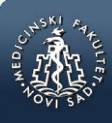md-medicaldata
Main menu:
- Naslovna/Home
- Arhiva/Archive
- Godina 2024, Broj 1
- Godina 2023, Broj 3
- Godina 2023, Broj 1-2
- Godina 2022, Broj 3
- Godina 2022, Broj 1-2
- Godina 2021, Broj 3-4
- Godina 2021, Broj 2
- Godina 2021, Broj 1
- Godina 2020, Broj 4
- Godina 2020, Broj 3
- Godina 2020, Broj 2
- Godina 2020, Broj 1
- Godina 2019, Broj 3
- Godina 2019, Broj 2
- Godina 2019, Broj 1
- Godina 2018, Broj 4
- Godina 2018, Broj 3
- Godina 2018, Broj 2
- Godina 2018, Broj 1
- Godina 2017, Broj 4
- Godina 2017, Broj 3
- Godina 2017, Broj 2
- Godina 2017, Broj 1
- Godina 2016, Broj 4
- Godina 2016, Broj 3
- Godina 2016, Broj 2
- Godina 2016, Broj 1
- Godina 2015, Broj 4
- Godina 2015, Broj 3
- Godina 2015, Broj 2
- Godina 2015, Broj 1
- Godina 2014, Broj 4
- Godina 2014, Broj 3
- Godina 2014, Broj 2
- Godina 2014, Broj 1
- Godina 2013, Broj 4
- Godina 2013, Broj 3
- Godina 2013, Broj 2
- Godina 2013, Broj 1
- Godina 2012, Broj 4
- Godina 2012, Broj 3
- Godina 2012, Broj 2
- Godina 2012, Broj 1
- Godina 2011, Broj 4
- Godina 2011, Broj 3
- Godina 2011, Broj 2
- Godina 2011, Broj 1
- Godina 2010, Broj 4
- Godina 2010, Broj 3
- Godina 2010, Broj 2
- Godina 2010, Broj 1
- Godina 2009, Broj 4
- Godina 2009, Broj 3
- Godina 2009, Broj 2
- Godina 2009, Broj 1
- Supplement
- Galerija/Gallery
- Dešavanja/Events
- Uputstva/Instructions
- Redakcija/Redaction
- Izdavač/Publisher
- Pretplata /Subscriptions
- Saradnja/Cooperation
- Vesti/News
- Kontakt/Contact
 Pasterovo društvo
Pasterovo društvo
- Disclosure of Potential Conflicts of Interest
- WorldMedical Association Declaration of Helsinki Ethical Principles for Medical Research Involving Human Subjects
- Committee on publication Ethics
CIP - Каталогизација у публикацији
Народна библиотека Србије, Београд
61
MD : Medical Data : medicinska revija = medical review / glavni i odgovorni urednik Dušan Lalošević. - Vol. 1, no. 1 (2009)- . - Zemun : Udruženje za kulturu povezivanja Most Art Jugoslavija ; Novi Sad : Pasterovo društvo, 2009- (Beograd : Scripta Internacional). - 30 cm
Dostupno i na: http://www.md-medicaldata.com. - Tri puta godišnje.
ISSN 1821-1585 = MD. Medical Data
COBISS.SR-ID 158558988
TROMBOFILIJA I TRUDNOĆA – PRIKAZ SLUČAJA
THROMBOPHILIA AND PREGNANCY – CASE REPORT
Authors
Anđelija Živković Stanojević, Darko Simonović
Dom zdravlja Bela Palanka/Health Center Bela Palanka
• Rad je primljen 23.02.2016. Revidiran 10.03.2016. Prihvaćen 11.03.2016.
Abstract
Thrombophilia is hereditary or acquired abnormality of the haemostasis' mechanism which could be a predisposition for thrombosis and therewith hypercoagulable states. Pregnancy is a hypercoagulable state which increases creation and levels of many factors of coagulation, but thrombophilia is risk factor that significantly enlarges number of obstretic complications and also early miscarriages, and it continues in postpartum period for 6 weeks at least. This is a case outline of 35 years old woman who was tested for thrombophilia and sent to haematology examinations by her obstetrician after two early miscarriages. Haematology examinations confirmed hereditary thrombophilia: genetic mutations for MTHFR (heterozygous) and genetic mutations for PAI-1 4G/4G (homozygous) and also primary antiphospholipid syndrome. According to positive test for thrombophilia, it was reccomended for patient to use low molecular weight heparin (LMWH), aspirin, pronison and folic acid before another procedure of in vitro fertilisation (IVF) or in case of spontaneous pregnancy.
Aim: Showing the significance of thrombophilia as haemostasis' disorder which can increase risk for thrombosis, thromboembolic complications and whole series of obstetric complications including early miscarriages also.
Conclusion: It's important to recognize on time and to set apart risk groups of patients, especially women who are pregnant or planning pregnancy and send them to thrombophilia testings. The detection of this haemostasis' disorder and prophylactic and therapeutic measures could give the best chance for risk pregnancy keeping, its positive outcome and preventing maternal complications.
Key words
thrombophilia, pregnancy, thrombosis, obstetric complications, antiphospholipid syndrome, low molecular weight heparin.
References
- Bakić M, Trombofilije dijagnostika i tretman, edukativni članak ACTA FAC. MED. NAISS. 2002;19(2):120-127.
- Mitic G, Novakov Mikic A, Povazan LJ, Mitreski A, Kopitovic V, Vejnović T, Thromboprophylaxis implementation during pregnancy in women with recurrent foetal losses and thrombophilia. Med Pregl 2011;64(9-10):471-5. doi: 10.2298/MPNS1110471M
- James A, Committee on Practice Bulletins, Obstetrics Practice bulletin no. 123: thromboembolism in pregnancy. Obstet Gynecol. 2011;118(3):718-29. doi: 10.1097/AOG.0b013e3182310c4c
- Sparić R, Lazović B, Stajić Z, Mazić S, Delić M, Kadija S, Thromboembolic complications during pregnancy and delivery. Med Pregl. 2013;66(9-10):417-23.
- De Jong PG, Goddijn M, Middeldorp S, Antithrombotic therapy for pregnancy loss. Hum Reprod Update. 2013;19(6):656-73. doi: 10.1093/humupd/dmt019. Epub 2013 Jun 13
- Committee on Practice Bulletins—Gynecology , The American College of Obstetricians and Gynecologists Practice Bulletin no. 150. Early pregnancy loss. Obstet Gynecol. 2015;125(5):1258-67. doi: 10.1097/01.AOG.0000465191.27155.25
- Goldstajn MS, Kovacević D, The Effect of Thrombophilia on Pregnancy Outcome and IVF Succes. Coll Antropol. 2014;38(4):1153-61.
- Mitić G, Považan LJ, Lazić R, Spasić D, Maticki-Sekulić M, Nedostatak prirodnih inhibitora koagulacije kod žena sa venskim trombozama u trudnoći. Med Pregl 2009;62(1-2):53-62. doi:10.2298/MPNS0902053M
- Lockwood CJ, Inherited thrombophilias in pregnant patients: detection and treatment paradigm. Obstet Gynecol 2002;99(2):333-41.
- Bates SM, Management of pregnant women with thrombophilia or a history of venous thromboembolism, Haematology Am Soc Hematol Educ Program, 2007; 143-50.
PDF Živković Stanojević A. and Simonović D. • MD-Medical Data 2016;8(1)
 Medicinski fakultet
Medicinski fakultet